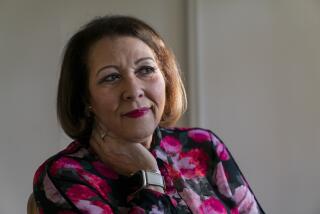Breast density increases cancer risk
Since the 1970s, radiologists have known that the density of a woman’s breasts is an important predictor of breast cancer. The disease is four to six times more likely in women with dense breast tissue than in women whose breasts consist almost entirely of fat.
The risk has long been attributed to problems with detecting a tumor because dense breast tissue, as opposed to fat, can mask the presence of very small tumors on a mammogram.
But there may be more to it than that. This month, Canadian researchers reported in the New England Journal of Medicine that the so-called masking effect did not fully account for the additional cancer risk.
Examining the records of more than 1,000 women, the researchers found that mammograms frequently detected cancer in women with very dense breasts. In fact, the detection rate was three times higher in women with dense breasts than in women with fatty breasts.
The results suggest very dense breasts don’t just mask tumors but pose “an underlying biological risk,” says Dr. Norman Boyd of the Ontario Cancer Institute in Toronto, lead author of the study.
At the same time, researchers found that screening failed to detect some cancers in women with dense breasts, confirming that the “masking effect” also had a role.
Overall, the study found that high breast density was linked to 16% of all breast cancers and 25% of breast cancers in women younger than 56.
Breast cancer is the second leading cause of cancer death in women, after lung cancer. The American Cancer Society estimates that 1 in 8 women will develop breast cancer in their lifetime.
Dense breasts contain proportionately more glandular and connective tissue than less dense breasts. They are more commonly found in younger women; the composition of the breast becomes fattier with age.
In the Canadian study, more than one-third of women younger than 56 had dense breasts, compared with 12% of women older than 56.
Boyd says that breast density probably is an inherited trait, and there is little a woman can do to alter it.
In general, women who receive mammograms are not given information about breast density because there is no accepted way of assessing it.
Dr. Karla Kerlikowske of UC San Francisco, who wrote an editorial accompanying the study, said she and other researchers were working to develop measurement standards. She predicts that breast density will one day be used to determine breast cancer risk, along with such factors as age and family history of the disease.





